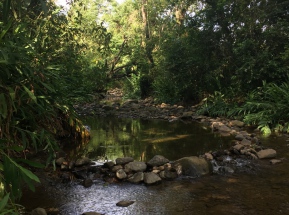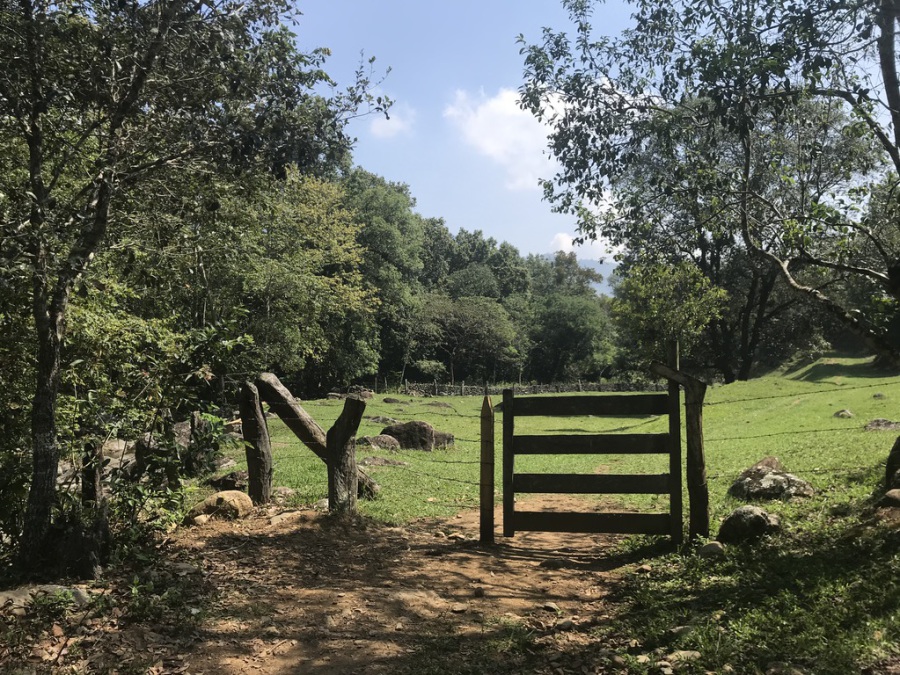Ganaderia Regenerativa//Regenerative Ranching
Los Impactos Ecológicos y Sociales de la Ganadería Regenerativa en la Sierra Madre Oriental de México
Uno de los problemas más urgentes que enfrentan las sociedades de todo el mundo en la actualidad es cómo mantener una alta calidad de vida para una población humana en crecimiento. Las actividades actuales agotan los recursos naturales que satisfacen nuestras necesidades más básicas en lugar de mantenerlos (tales como el aire, los alimentos, el agua y la energía). Los ecosistemas que brindan estos servicios requieren suelo de calidad y agua limpia, así como plantas y animales saludables, y la biodiversidad subyacente es un fuerte indicador de qué tan bien un área puede sostener a sus habitantes. La ganadería se ha convertido en un tema central de esta tópico, ya que se ha identificado al ganado como una fuente importante de emisiones nocivas para la salud (gases de efecto invernadero como el metano), y el manejo deficiente del pastoreo puede conducir a una degradación ambiental que impacta los niveles de biodiversidad. Sin embargo, usando prácticas regenerativas se puede mantener la biodiversidad y la calidad del suelo. La ganadería regenerativa busca obtener la mayor rentabilidad por hectárea haciendo uso de prácticas como el pastoreo racional, la disponibilidad contínua de agua limpia, el uso de la sombra, la eliminación del uso de desparasitantes que dañan a los organismos del suelo y otros agroquímicos, una carga animal adecuada y periodos óptimos de descanso en la praderas, entre otros.
Este proyecto reúne a equipos internacionales de investigadores y ganaderos para compartir las mejores prácticas, identificar las brechas de conocimiento relacionadas con la ganadería regenerativa, y establecer protocolos para recopilar datos significativos. Se medirán indicadores clave de salud ambiental y ganadera, así como las percepciones sociales y la receptividad de la comunidad al cambio. Los hallazgos de esta subvención colaborativa TAMU-CONACyT servirán como base para una propuesta a gran escala para los principales financiadores privados y gubernamentales.
El equipo de investigación:
Lucrecia Arellano Gámez (INECOL PI)
Agustín Bobadilla Hernández (CEIEPASP/UNAM)
Consuelo Domínguez Barradas (UV)
Adriana Flores-Díaz (CENTRUS/UICM)
Silvia López (COLPOS Veracruz)
Bobby Nakamoto (UC Riverside)
Elizabeth Hernández (INECOL)
Ilse Ortega (Postdoc - INECOL)
Ponciano Pérez (COLPOS Veracruz)
Miriam Ramos Escobedo (Global Water Watch)
Gil Rosenthal (UniPd/CICHAZ)
Eduardo Salas Reyes (ASPac/CICHAZ/La Tejería)
Rhonda Struminger (UniPd/CICHAZ)
José Antonio Torres (CRUO UAch)
Gabriela Vázquez Adame (ASPac/CICHAZ)
The Ecological and Social Impacts of Regenerative Ranching in Mexico’s Sierra Madre Oriental
One of the most pressing issues facing societies around the globe today is how to sustain a high quality of life for a growing human population. Today's activities deplete the earth's resources that meet our most basic needs (such as air, food, water, and energy) instead of maintaining them. The ecosystems that provide these services require quality soil and clean water, as well as healthy plants and animals and the underlying biodiversity is a strong indicator of how well an area can sustain its inhabitants. Ranching has become central to this conversation as cattle has been identified as a significant source of unhealthy emissions and poor grazing management can lead to environmental degradation that impacts biodiversity levels. However, using regenerative practices, biodiversity and soil quality can be maintained. Regenerative ranching seeks to achieve high profitability per hectare by using practices such as rational grazing, keeping clean water continuously available, providing shade, eliminating the use of dewormers that damage soil organisms and other agrochemicals, assuring an adequate animal load and optimizing rest periods in the meadows.
This project brings together international teams of researchers and ranchers to share best practices, identify knowledge gaps related to regenerative ranching, and establish protocols for collecting meaningful data. Key indicators of environmental and cattle health, as well as social perceptions and community receptivity to change will be measured. Findings from this collaborative TAMU-CONACyT grant will serve as the basis for a large-scale proposal to major private and government funders.
The Research Team:
Lucretia Arellano Gámez (INECOL PI)
Agustín Bobadilla (CEIEPASP/UNAM)
Consuelo Domínguez Barradas (UV)
Adriana Flores-Díaz (CENTRUS/UICM)
Silvia López (COLPOS Veracruz)
Bobby Nakamoto (UC Riverside)
Elizabeth Hernández (INECOL)
Ilse Ortega (Postdoc - INECOL)
Ponciano Pérez (COLPOS Veracruz)
Miriam Ramos Escobedo (Global Water Watch)
Gil Rosenthal (UniPd/CICHAZ)
Eduardo Salas Reyes (ASPac/CICHAZ/La Tejería)
Rhonda Struminger (UniPd/CICHAZ)
José Antonio Torres (CRUO UAch)
Gabriela Vázquez Adame (ASPac/CICHAZ)


















